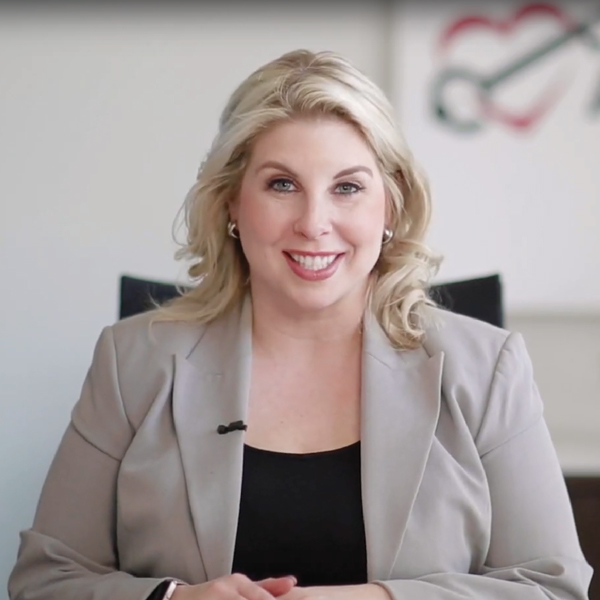There’s no place like home, especially for older residents who value the security and comfort found there but who also need a helping hand as they age.
That’s where home caregivers can assist with such non-medical services as meal preparation, help bathing and dressing, medication reminders, housekeeping and more, says Larry Kempton of Homewatch CareGivers of Green Valley.
According to the National Association for Home Care, about 7.6 million people in this country require some form of home health care, and more than 20,000 home health care providers exist.
The association also reports that almost two-thirds of home health care recipients are women, and more than two-thirds are over age 65.
And as the baby boomer generation continues to age, there will absolutely be an increasing need for in-home care, says University of Arizona associate professor Jane Mohler, associate director of research and development for the Arizona Center on Aging.
The fastest growing population in this country, percentage wise, are those 85 years old and up, Mohler points out.
According to Rachel Seitz of Lutheran Social Services of the Southwest, elderly residents able to stay in their own homes live longer and stay healthier.
And home care can be an affordable way for seniors to remain independent longer, says Connie Halkowitz of Access Wisdom Home Care Plus.
Short, long term
These companies and others offer home care in Green Valley for any time frame, short or long. It can be just two days a week for two hours at a time, around-the-clock care, or something in between.
These three companies also are among the pet-friendly care providers, and will tend to a client’s cat, dog, bird or fish.
“We do housekeeping, but we’re not a cleaning service. We don’t do windows or clean the oven,” Halkowitz said.
“Our goal,” says Kempton, “is to keep our clients safe and healthy in their homes, preserving their dignity, protecting their independence and providing peace of mind to our clients as well as their families.”
Green Valley residents Olga Leone and Pat Birh agree.
‘I want to stay’
Leone, 86, has vision problems, so her helper from Access Wisdom cooks for her, goes shopping with her, does her laundry and some light housekeeping, and helps Leone in and out of the bath tub.
“It absolutely improves my quality of life,” Leone says. She wouldn’t be able to live at home without the aide, “and I want to stay here,” she says.
Her helper comes five days a week for two or three hours, is a good companion, and will take her for a walk outside when the weather is nice.
“It’s a little bit of socialization I wouldn’t have otherwise,” Leone says.
Birh, 68, receives help three days a week with her grocery shopping, laundry, house cleaning, showers and trips to the pharmacy.
She says the aide improves her quality of life and allows to continue living at home.
Sometimes home caregivers are hired by the clients themselves. Other times it’s an adult son, daughter or other family member who sees the need, Kempton said. Or a call might come from a neighbor, doctor or fellow church member.
“It’s hard to get families to plan ahead. Usually it’s a crisis situation,” he says.
And elderly residents may fear being sent away from home to an assisted living facility, Seitz says.
When home caregivers receive a call for help, they will visit the home and explain at no cost the options the resident has, give them time to think about it if needed, and conduct a follow-up, Halkowitz explains.
“It lets us come out, do an assessment and get the vital information,” she says.
Depending on the person’s needs, the caregiver may provide a team response that includes home-care recommendations, a doctor’s visit and, if money is an issue, financial advice that might include an application for help through Arizona Long Term Care Services, Kempton said.
Costs can average $18 to $22 an hour for in-home care, with discounts in some cases for 24-hour care, for simple companion care, for veterans or for those belonging to groups like Power Over Parkinson’s.
These non-medical, non-skilled services are not covered by Medicare, but they are by long-term care insurance policies and a few top-of-the-line health insurance policies, Halkowitz says.
Also, employees of bonded and insured home-care companies have passed background checks and TB tests, and received training in CPR and more.
“We ensure they are trained, skilled and know what they are doing,” Halkowitz says.
Plus, with a home-care company, a fellow employee can step in when the regular caregiver isn’t available.
Caregivers and clients often develop strong relationships, and clients’ family members let the caregivers know how grateful they are for the services for their loved ones.
Home caregivers also provide clients and family caregivers with opportunities to get out into their community to shop, join in a card game, or perhaps have lunch with the senior program at Green Valley’s Casa de Esperanza, Kempton says.
Casa de Esperanza’s role
Casa’s adult day care is especially helpful when a spouse or family member is providing care for an older adult, says Bill McCreery, executive director at Casa.
“It’s kind of like having your cake and eating it too. You continue to live at home and come to Casa for the day for health monitoring, activities, and get to socialize as well,” he says.
“Adult day care can be less expensive, as well, and if you can’t afford in-home care, this is an option that works for people,” McCreery says. “I can’t tell you how many people have said the adult day care program saved their life.”
Good relationships with paid caregivers are important and helpful, he notes, “but you also need to have regular contact with people who you are not paying to be there with you. The professional caregiver/care receiver relationship is not the same as the relationships you develop with friends,” McCreery says.
Plus, he points out, adult day care provides a chance for the family caregiver to rest and relax at home, instead of going out.
“People need to find the right mix of help that works for their specific needs. The most important thing is that people get the help they need and do not do without basic care, good nutrition and opportunities to socialize on a regular basis,” McCreery says.
Home caregivers also can assess when a client no longer can stay at home, plus they will work in cooperation with hospice groups when the end of a life is near.
It’s understandable that everyone wants to stay at home, says McCreery. But some elderly residents will insist they will never move out of their home, no matter what.
McCreery has spoken with many people in their 80s and 90s who moved out of their homes with some trepidation and said it was the best decision they ever made.
“They loved their new assisted living or care home environment. They had no idea how much they worried about everything — their house, car, dealing with making meals, medical decisions and the like, and of course being around people, their peers and friends. This is incredibly important for people at any age. People are healthier when they socialize regularly and have a circle of friends.”
kwalenga@gvnews.com | 547-9739
Stay at home
In the not-so-distant future, people in need of certain kinds of medical care may be able to get it at home.
Home-based primary care is being developed in Southern Arizona, says University of Arizona associate professor Jane Mohler, associate director of research and development for the Arizona Center on Aging.
The U.S. Department of Veterans Affairs is the forerunner of this team-based approach that includes a patient’s physician, pharmacy, nursing care, non-medical home care if needed, and more, Mohler says.
University Physicians Healthcare also is working to develop home-based primary care, she notes. Plus, home-based hospital care also may be pursued in the future.
“People want to stay at home,” Mohler notes, and home-based primary care could offer huge cost-savings compared to a hospital stay, and can be safer for the patient.
For more information, visit online at http://www.va.gov/GERIATRICS/Home_Based_Primary_Care.asp.
Source: http://www.gvnews.com/sahuarita_sun/article_aed194dc-39f2-11e0-a851-001cc4c03286.html

